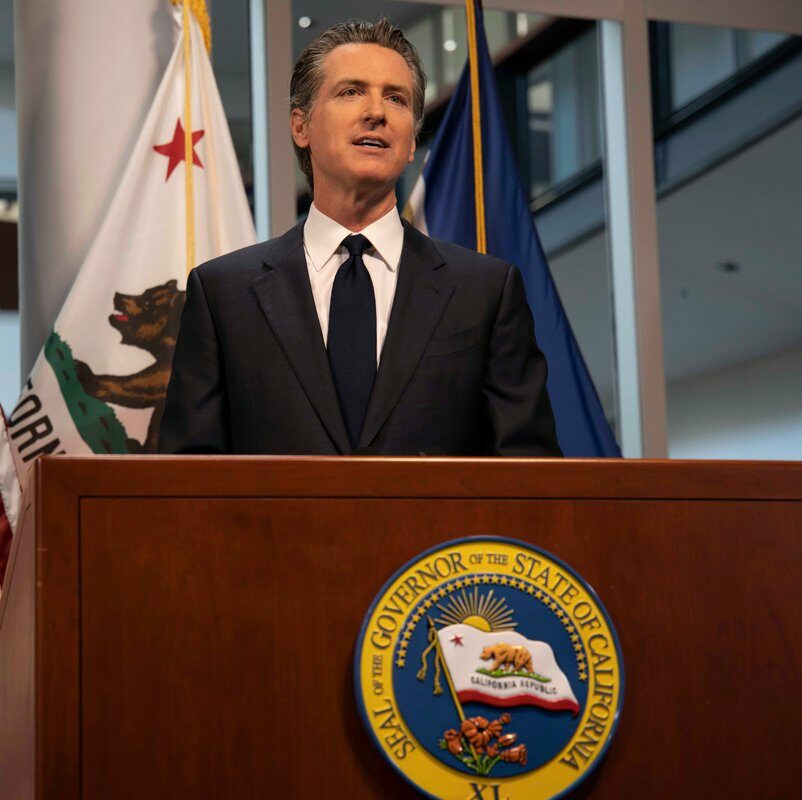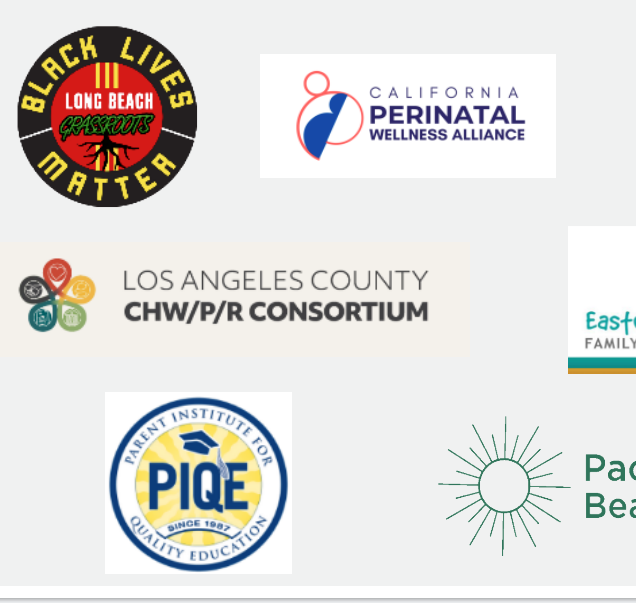Ofelia Medina | Senior Policy Strategist | Senior Policy Strategist |
August 20, 2025
On June 27, Gov. Gavin Newsom signed into law California’s state budget for FY 2025-26. The enacted budget includes $321.1 billion in spending — up 3.3% over last year’s budget — and will be covered by $228 billion from the state’s General Fund, an estimated $89 billion from special funds and $4 billion from bond accounts.
The final budget isn’t quite final, however. Last May, state officials had estimated that California would receive $174 billion in funding from the federal government. But provisions included in the federal government’s H.R.1, “One Big Beautiful Bill,” could significantly decrease California’s total share of federal dollars. If this happens, California would be forced to make further adjustments, not just to this year’s budget but to previous budget acts as well. California lawmakers are prepared to return to Sacramento later this fall if additional action is needed to mitigate the negative implications of any federal actions.
The final budget features several provisions relevant to First 5 LA’s advocacy priorities for 2025, including:
Health care. Despite these gains, the approved budget significantly fails young children and their families on the health care front, starting with the failure to address the loss of continuous Medi-Cal coverage for children prenatal to 5. Research shows that even a short gap in coverage can result in a child missing much-needed care and prevention. Left untreated, these conditions could worsen and result in missed school days, trips to the emergency room and financial hardships for the family. Such coverage disruptions are more likely to affect Latino and Black families.
California had previously approved funding to implement continuous coverage for young children in 2022. But last November, voters approved a measure that eliminated funding for this much-needed change. Despite the efforts of First 5 LA and other advocacy partners, Newsom and state lawmakers did not address the issue in the new budget.
The state budget also makes matters worse for California’s immigrant families by instituting both a freeze on new Medi-Cal enrollment for undocumented adults (effective January 1 of next year) and a $30 monthly premium for those already enrolled in the program (effective July 2027). This shift away from proven two-generation coverage strategies ignores clear evidence that children thrive when their parents and caregivers have coverage.
The budget also reduces funding for ACEs Aware, the state initiative that offers health care providers training, screening tools, clinical protocols and payment for screening for Adverse Childhood Experiences (ACEs). From 2020 through 2023, providers conducted more than 2.3 million ACE screenings of approximately 1.5 million unique Medi-Cal members.
Child care provider rates. Current reimbursement rates for child care providers do not sufficiently cover the full cost of providing enriching care to young children. First 5 LA has advocated for the implementation of a single rate structure using an alternative methodology that reflects the true cost of care. The enacted budget moves the state closer to that goal by providing $25.5 million for local and state administrative needs for the Alternative Methodology implementation preparation. The budget also provides $70 million in General Fund and $19.3 million in Prop. 98 funding to cover the ongoing statutory cost-of-living-adjustment (COLA) for all child care and preschool programs, based on the Cost of Care Plus rates established in the 2023-24 Budget Act.
Transitional Kindergarten. The final budget allocated funds to finalize transitional kindergarten (TK) access for all of California’s four-year-olds. This years budget focused on lowering teacher/student ratios and developing an age-appropriate English language proficiency screener for TK students. State education officials have outlined numerous benefits to having a lower adult-to-student ratio in TK classes, including opportunities for individualized instruction, additional adult support and attention, and supervision at all times. To promote this change, the final budget requires the State Superintendent to withhold a portion of Local Control Funding Formula (LCFF) funds from a school district or charter school if they fail to comply with a staffing ratio of at least one adult for every 10 pupils. In addition, the enacted budget allocates $10 million one-time Proposition 98 General Fund for the statewide use of English language proficiency screeners to support multilingual learning in transitional kindergarten (TK). Using a developmentally appropriate screener, notes the Legislative Analyst’s Office, would help school districts identify students in need of language development supports and provide early interventions that can improve English proficiency and long-term academic outcomes.
In 2024, First 5 LA supported legislation to exempt children enrolled from the mandated screening until the creation of a developmentally appropriate tool could be created. The budget includes $10 million for the development of a list of screening instruments that meet the requirements.
Also included in the budget are wildfire prevention items, numerous housing reforms, and more. Additional details can be found below.
Reactions. The approved budget received mixed reactions from early childhood advocates, who commended Newsom for maintaining investments in a number of early childhood priorities while expressing disappointment in reductions and changes to several other programs.
“In a year of difficult choices, we are pleased to see that the Governor and Legislature restored the funding for maternal mental health grants,” said “Yet we remain gravely concerned about the broader consequences of implementing monthly premiums and freezing new Medi-Cal enrollment for undocumented adults and the reduced investment in Adverse Childhood Experiences (ACEs) Aware. These decisions risk pushing more families into the shadows and further away from needed health care.”
First 5 LA President and CEO Karla Pleitéz Howell agreed, noting that the Medi-Cal enrollment freeze would have a critical effect on immigrant communities, including working families with young children, who are vital to California’s economy.
“Even with reduced premiums, undocumented adults, who are parents of young children, will continue to experience health care uncertainty,” she emphasized.
Next Steps. Given a potential decrease in federal funding for California, further adjustments to the enacted budget may occur later this fall. First 5 LA — along with its Sacramento-based state advocates, the statewide network of First 5s and other advocacy partners — remains committed to working with state leaders to advance equitable, sustainable solutions for all families.
***
Below, please find a list of items included in California’s 2025-26 Budget that affect young children and their families.
* denotes a First 5 LA 2025 Advocacy Agenda priority.
Children prenatal to age 5 and their families have their basic needs met.
Support policies to address the access, sustainability, and accountability of perinatal care systems to reduce maternal and infant mortality and ensure healthy and joyous births.
- MCO Tax / Proposition 35: Generates $1.3 billion in General Fund savings in 2025–26 and $264 million in 2026–27 through Proposition 35. Reflects multi-year investments from the MCO Tax and Prop 35 expenditure plan, including $1.6 billion to increase managed care rates for primary care, specialty care, emergency transport, and outpatient hospital services.
Strengthen safety net policies that provide long-term support to reduce poverty and promote economic stability.
- Projected CalWORKs Grant Increase: Approves the Streamlining the CalWORKs Program Experience and adds new provisions consistent with more holistic interventions and family-centered approaches. The net changes result in estimated savings of $4.6 million in 2025-26 and $14 million in 2026-27 and ongoing. All savings will be reinvested into the CalWORKs Single Allocation.
- Diaper Initiative: Allocates $7.4 million in the 2025–26 fiscal year on a one-time basis to implement the Diaper Access Initiative utilizing existing diaper banks and vendors.
Promote comprehensive housing policies and systems to ensure access to stable homes.
- Renters Tax Credit: Increases the Credit for qualified renters with dependents from $120 to $500.
- Housing programs: Allocates funding to several housing programs: the Low Income Housing Tax Credit ($500 million), the Multi-Family Housing Program ($120 million), the Encampment Resolution Fund ($100 million), and the Dream for All Program ($300 million). These programs are intended to expand access to affordable housing through rental development, preservation, and homelessness response — critical supports for low-income families with young children at risk of housing instability.
Children prenatal to age 5 have nurturing relationships and environments.
Ensure policy efforts increase mental health screening, treatment, and accountability to address challenges faced by birthing and postpartum people.
- CalHOPE Warm Line: Provides $5 million to support the continuation of the CalHOPE Warm Line, a 24/7 peer-run crisis line offering free, confidential emotional support.
Promote policies and practices that increase access to healthy food options and food security.
- Nutrition: Appropriates $160 million to establish the Universal School Meals Support Grant, which will support kitchen infrastructure upgrades and staffing. Universal School Meals provides free breakfast and lunch for over 5.8 million TK-12 students in California schools.
- Summer Electronic Benefits Transfer (SUN Bucks): Increases SUN Bucks funding to $115.8 million in 2025-26 for transaction costs and outreach to allow California to provide an estimated $815.9 million in federal food assistance to children. SUN Bucks provides grocery assistance to families with children during the summer when schools are closed.
- California Food Assistance Program (CFAP): Rejects the May Revision trigger proposal that would have made the planned CFAP expansion subject to future funding review. The CFAP Expansion, which will expand benefits to older adults 55+ regardless of immigration status, is currently underway and is scheduled to take effect in October 2027.
Elevate policies aimed at enhancing and funding access to safe parks and open spaces.
- Exide Cleanup Fund Shift: Includes a fund shift of $35 million GF to the Lead-Acid Battery Cleanup Fund for the cleanup of residential properties with lead contamination near the former Exide lead-acid battery recycling facility in Vernon, CA.
Children prenatal to age 5 have a solid foundation for well-being, lifelong learning and success..
Advance policies, practices, and public investment to strengthen the mixed-delivery system and increase family choice.
Child Care and Development:
- Maintains the state’s commitment to 146,000 new child care slots, with a goal of 200,000 by 2028.
- Provides a cost-of-living adjustment for all child care and preschool programs, using the “Cost of Care Plus” rates established in the 2023–24 budget ($70 million General Fund, $19.3 million Prop 98).
- Allows future COLA funding to be redirected across all programs in the Single Rate System.
- Allocates $114.8 million for one-time provider payments and administrative costs tied to collective bargaining agreements, including out-of-contract supplements and union dues processing.
- Provides $128.2 million to support enrollment-based payments for all child care and preschool programs starting July 1, 2026, while maintaining current policies in the interim.
- Invests $25.5 million in one-time federal and state funds to support state and local administrative readiness for implementing a new rate methodology.*
- Adds eight new positions at the California Department of Education to support preschool policy work and gives CDE authority to expand contracts for serving more three-year-olds.
- Reduces Emergency Child Care Bridge Program funding by $30 million in 2025–26 and ongoing, while maintaining $63.7 million for continued support.
Universal Transitional Kindergarten (TK):
- Funds the cost of TK enrollment from the Local Control Funding Formula (LCFF) outside of the Prop. 98 split between TK-12 Education and California Community Colleges.
- Child-to-Adult Ratio*: Beginning 2025–26 school year, requires the Superintendent to withhold a portion of a school district’s or charter school’s LCFF entitlement if they do not maintain an average of at least one adult for every 10 pupils for TK classrooms at each school site.
- English Language Proficiency Screener for TK Students*: Provides $10 million to develop and test new tools for identifying multilingual learners in TK. Beginning in 2027–28, districts will be required to use a state-approved instrument when screening TK students whose home language is not English.
- Cost-of-Living-Adjustment (COLA): Provides $174 million for a 2.3% COLA to statutorily-required TK-12 programs and the equity multiplier.
- Before, After, and Summer School Programs: Lowers the ELOP student eligibility threshold for school districts from 75% to 55% of high-need students, expands auditing rules for some districts, and raises the minimum funding level to $100,000 per year.
Amplify policies that ensure health systems are robust and coordinated, and accountable for delivering early intervention services.
- Enrollment Freeze for Full-Scope Medi-Cal Expansion for Undocumented Adults: Freezes Medi-Cal enrollment for adults aged 19 and older with undocumented immigration status, beginning January 1, 2026. Includes a three-month grace and cure period allowing for re-enrollment. Individuals already enrolled in the program cannot “age-out.”
- Medi-Cal Premiums of $100/Month for Undocumented Adults: Implements a $30 per-month Medi-Cal premium, effective July 1, 2027, for undocumented individuals, ages 19 to 59.
- FQHC and Rural Health Clinic Reimbursement: Ends enhanced reimbursement rates for services provided to undocumented adults at federally qualified health centers (FQHCs) and rural clinics, starting no sooner than July 1, 2026.
- Behavioral Health Workforce Initiative: Allocates $1.9 billion to expand behavioral health workforce programs beginning January 2026.
- Regional Center Workforce Training: Does not advance the Governor’s May Revision proposal related to workforce training and development for direct service professionals at regional centers.
- Skilled Nursing Workforce Incentives: Ends the Workforce and Quality Incentive Program (WQIP) for Skilled Nursing Facilities as of January 1, 2026.
- Adverse Childhood Experiences (ACEs): Provides $1 million to expand ACEs training through the Behavioral Health Services Fund in 2025–26.
Advocate for policies that support culturally affirming care, services, and supports that meet diverse needs.
- English Language Proficiency Assessment: Allocates $7.5 million for eligible local educational agencies to mitigate funding reductions due to the exclusion of TK pupils from being administered an English language proficiency assessment.
- Literacy Instruction: Literacy Support: Provides $215 million to expand the state’s Literacy Coaches and Reading Specialists Grant Program. Most of the funding ($200 million) will go to school districts to strengthen literacy programs, hire and train literacy staff, and support students who need extra help learning to read.
- Regional Centers:
- Reduces funding for Implicit Bias Training by $5.6 million in 2025-26. Reduces reimbursements by roughly $1.5 million ongoing, to eliminate dedicated resources for refreshing implicit bias training at regional centers.
- Provides $2 million in state funding for county offices of education serving as regional leads for English Learner support. Funding will begin in 2025–26 and continue annually.
Wildfire Response:
Property Tax Backfill: Allocates up to $9.7 million one-time for property tax backfill related to fire-impacted school districts, and $1.8 million one-time fire-impact assistance.





